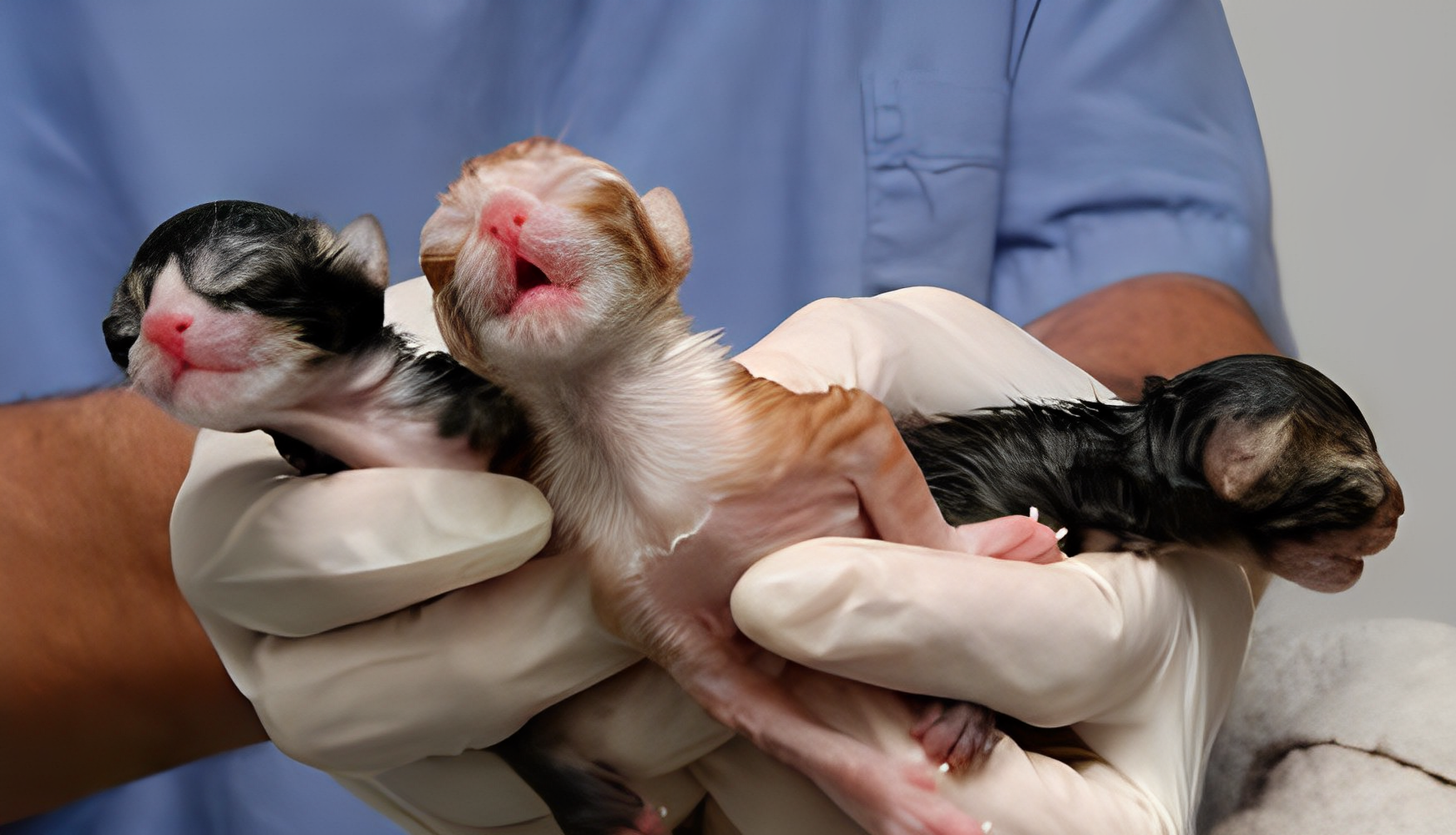Welcoming a litter of newborn kittens into your home is a heartwarming experience that requires careful attention and dedication. These tiny, fragile creatures demand special care during their earliest days to ensure they grow into healthy and happy cats. In this comprehensive guide, pet barn ‘ll delve into the intricate details of caring for newborn kittens, from the first moments of their lives to the adorable stages of their early development.
1. The First 24 Hours: Tender Beginnings
The initial 24 hours of a kitten’s life are both magical and crucial. Newborns are born blind, deaf, and completely dependent on their mother. It is vital to allow the mother cat to bond with her kittens during this time, providing a quiet, safe space for the family to establish strong connections. Observe from a distance, as interference can disrupt the delicate bonding process.
During this period, it’s essential to monitor the mother cat’s behavior. Ensure she is nursing each kitten adequately, as the first milk, or colostrum, is rich in antibodies crucial for the kittens’ immune system development. If there are concerns about the mother’s ability to care for her litter, consult with a veterinarian for guidance.
2. Nutrition Matters: The Power of Mother’s Milk
Mother’s milk is a nutritional powerhouse for newborn kittens. It not only provides essential nutrients but also offers antibodies that protect against infections. Ensure the kittens are nursing properly and observe their weight gain to gauge their health.
In some cases, the mother cat may be unavailable or unable to nurse. In such instances, it becomes necessary to provide an alternative source of nutrition. Kitten formula, available at pet supply stores, can be used to supplement or replace mother’s milk. Feeding techniques, such as bottle-feeding, must be mastered to ensure the kittens receive the nourishment they need for proper growth.
3. Keeping It Cozy: Creating a Warm and Safe Environment
Newborn kittens are highly susceptible to temperature changes, so maintaining an optimal environment is crucial. The recommended ambient temperature for the nest is around 85°F (29°C) during the first week and can be gradually reduced to 80°F (27°C) by the end of the fourth week.
Provide a cozy nest with soft, warm bedding, away from drafts and direct sunlight. A heating pad set on low, or a heat lamp can be used but should be positioned to allow kittens to move away from the heat source if they become too warm. Regularly check their comfort by feeling their ears; cold ears indicate they are too cold, while overly warm ears suggest they are too hot.
4. Health Checks and Veterinary Care: Monitoring Development
Regular health checks are essential for tracking a kitten’s growth and development. Begin by weighing each kitten daily to ensure they are gaining weight appropriately. Deviations from the norm may indicate potential health issues, and prompt action is necessary.
Perform basic health assessments, such as checking for clear eyes, clean ears, and a pink, moist nose. Monitor for signs of illness, such as lethargy, diarrhea, or difficulty breathing. Early detection is key to addressing health concerns promptly.
Schedule veterinary appointments to initiate vaccinations and receive guidance on preventive care measures. Regular veterinary check-ups are crucial to ensuring the overall well-being of the kittens as they progress through their early stages of life.
5. Gradual Introductions: Socializing Your Fur Babies
As kittens grow, they become increasingly curious and playful. Gradual socialization is key to developing well-adjusted, sociable adult cats. Start by introducing gentle handling and positive experiences to foster a trusting relationship between the kittens and humans.
Allow the kittens to explore their surroundings in a controlled, safe environment. Introduce them to different sights, sounds, and smells, gradually exposing them to the household routine. Additionally, introduce them to other pets in the household, if applicable, ensuring all interactions are supervised and positive.
Positive reinforcement, such as treats and affection, can be used to reward good behavior. Patience is paramount during this phase, as each kitten will have its own pace of development.
6. Weaning and Solid Foods: Transitioning to Independence
As the kittens approach the weaning stage, usually around three to four weeks of age, the introduction of solid foods becomes necessary. Start by offering high-quality kitten food softened with kitten formula or water. Place the mixture on a shallow plate, allowing the kittens to explore and taste the new texture.
Gradually decrease the amount of formula added to the food as the kittens become more accustomed to eating solid meals. By the time they reach six to eight weeks of age, they should be fully weaned and consume a diet of quality kitten food.
Ensure access to fresh water at all times and monitor the kittens’ progress to make adjustments as needed. Proper nutrition during this phase is crucial for their continued growth and development.
7. Adoption Day: Finding Loving Homes
As the kittens reach the appropriate age for adoption, typically around eight weeks, it’s time to find them loving forever homes. Responsible adoption practices are vital to ensuring the well-being of the kittens in their new environments.
Initiate the adoption process by conducting thorough background checks on potential adopters. Ensure they are committed to providing a safe, loving, and permanent home for the kittens. Provide information on the kittens’ health history, vaccination status, and spaying/neutering details.
Additionally, educate new owners on the ongoing care requirements of their new feline companions. Encourage them to continue regular veterinary check-ups, vaccinations, and proper nutrition to promote a lifetime of health and happiness for the adopted kittens.
Caring for newborn kittens is a rewarding journey that demands time, dedication, and a deep understanding of their unique needs. By providing optimal care from their first moments of life to the adorable stages of their development, you set the foundation for these tiny felines to lead healthy, happy lives. Whether you’re a seasoned cat owner or a first-time caregiver, embracing the journey from birth to adorable is a magical experience that forms a lasting bond between you and your feline companions. Through tender beginnings, proper nutrition, a warm environment, vigilant health checks, gradual socialization, and thoughtful adoption practices, you contribute to the well-being of these kittens and ensure they find loving homes where they can thrive for years to come.

